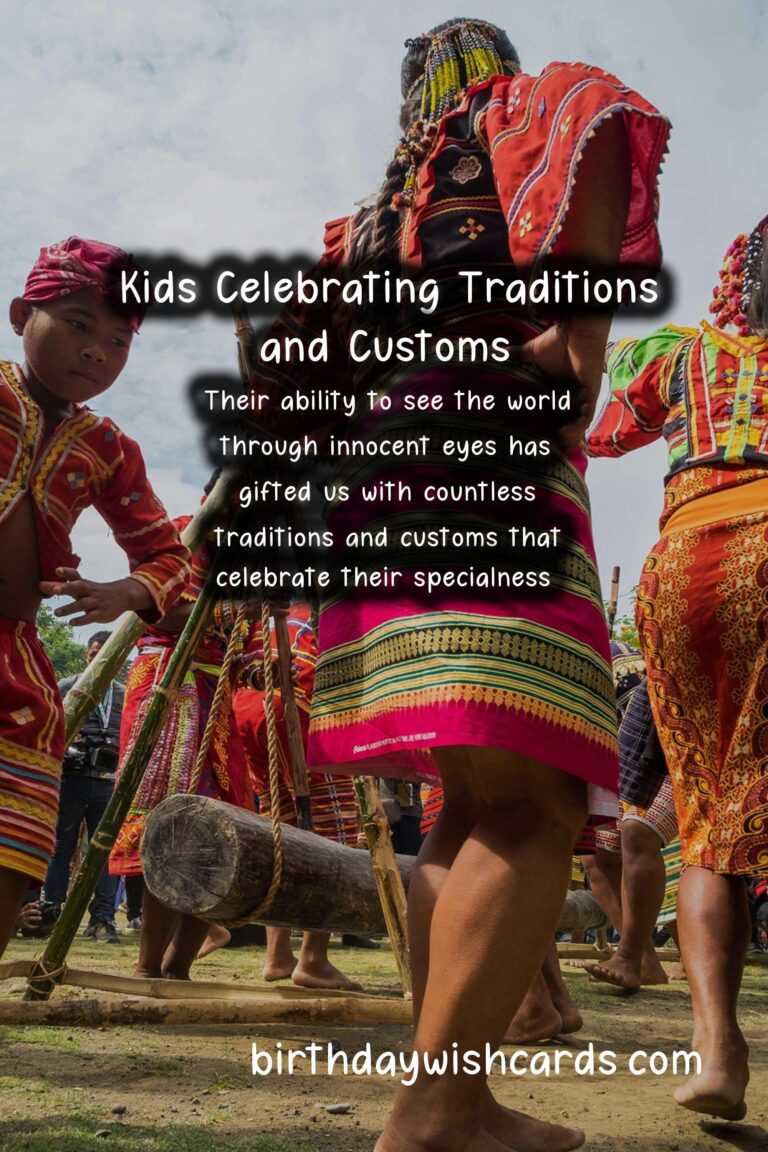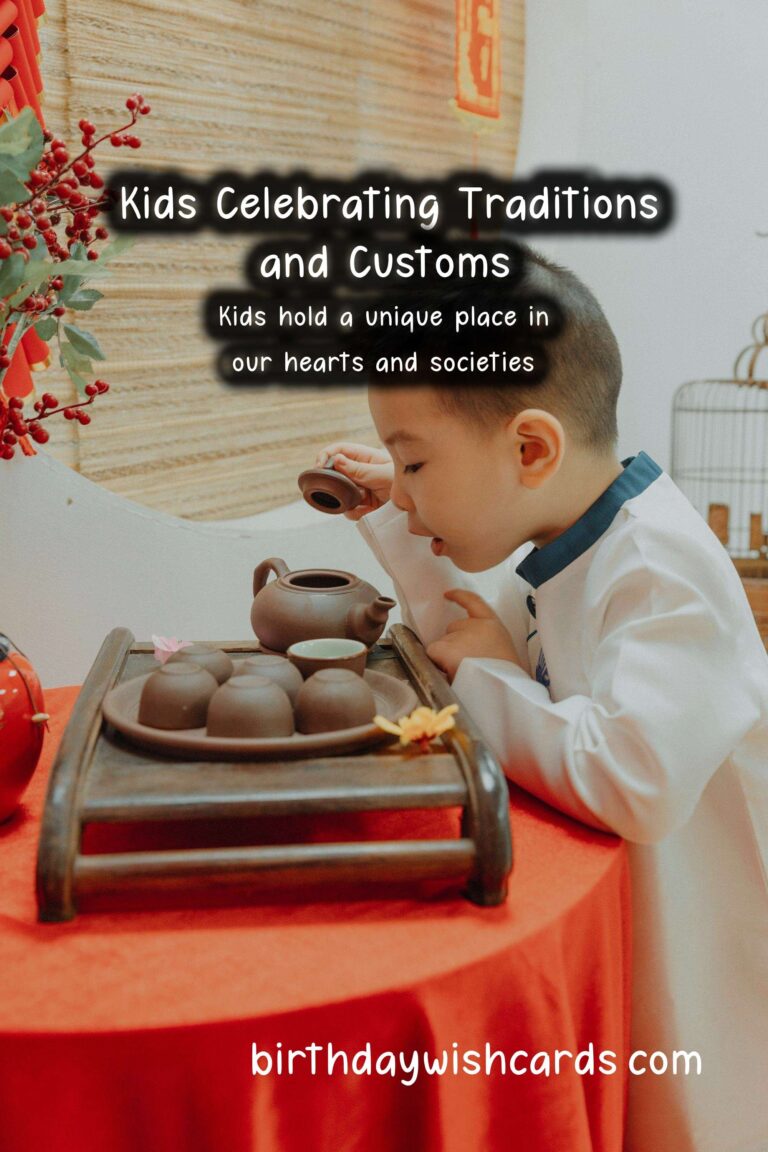
Kids hold a unique place in our hearts and societies. Their ability to see the world through innocent eyes has gifted us with countless traditions and customs that celebrate their specialness. This article explores the various ways we honor children in different cultures, highlighting the significance of these traditions and the lessons they impart.
The Importance of Traditions
Traditions form the backbone of any culture, offering individuals a sense of identity and continuity. For children, participating in these time-honored customs strengthens their connection to their heritage.
Children learn valuable lessons through traditions. They understand the importance of family bonds, community involvement, and personal responsibility. These teachings help shape their character and influence their adult lives.
Festivals Celebrating Childhood
Various festivals around the world celebrate children and the joy they bring to our lives. Here are some notable examples:
Holi – The Festival of Colors
In India, the festival of Holi represents the triumph of good over evil and the arrival of spring. Children play with colors, laugh, and create lasting memories. This festival brings families together and allows kids to express themselves freely.
Children’s Day
Many countries celebrate Children’s Day, focusing on the rights and well-being of children. Activities are planned to educate parents about the needs of their children and to promote their welfare.
Rituals of Passage
Rituals of passage are significant milestones in a child’s life that often involve unique customs:
Bar/Bat Mitzvah
In Jewish culture, a boy’s Bar Mitzvah (or a girl’s Bat Mitzvah) marks their coming of age at 13 or 12, respectively. This event signifies their responsibilities towards their faith and community.
Quinceañera
A Quinceañera is a celebration of a girl’s 15th birthday in Latin cultures, marking her transition into womanhood. This lavish event is filled with dance, music, and cultural significance.
Educational Traditions
Education plays a crucial role in a child’s development. Various cultures have educational traditions that celebrate the learning process:
Chinese New Year and Learning
In Chinese culture, the New Year is a time for families to gather and emphasize the importance of education. Children typically receive red envelopes with money, symbolizing good luck and prosperity for their academic pursuits.
Back to School Celebrations
In many cultures, returning to school after summer break is celebrated with ceremonies that encourage students’ commitment to learning. These events often include speeches and activities designed to inspire excitement about the school year ahead.
Understanding and Empathy through Customs
Cultural customs help children develop empathy and understanding for others:
Thanksgiving
In the United States, Thanksgiving is a time for families to express gratitude. Children learn to appreciate what they have while participating in community service, helping those less fortunate.
Diwali – The Festival of Lights
In Hindu culture, Diwali teaches children the values of kindness, sharing, and nurturing relationships. Families illuminate their homes, symbolizing the triumph of light over darkness.
Parent-Child Bonding through Traditions
Childhood traditions often involve parents, fostering a strong bond:
Storytime
Reading bedtime stories is a cherished tradition in many households. It nurtures a love for literature, promotes imagination, and strengthens the parent-child relationship.
Family Gatherings
Regular family gatherings allow children to develop a support network, providing them with a sense of belonging. These gatherings often involve shared meals, games, and storytelling.
Conclusion
Celebrating children through traditions and customs not only enriches their lives but also strengthens societal bonds. These practices emphasize the specialness of kids, teaching love, kindness, empathy, and responsibility.
As we embrace these traditions, let us remember to instill the values they represent and ensure that the next generation continues to cherish their uniqueness.
Kids hold a unique place in our hearts and societies. Their ability to see the world through innocent eyes has gifted us with countless traditions and customs that celebrate their specialness.

